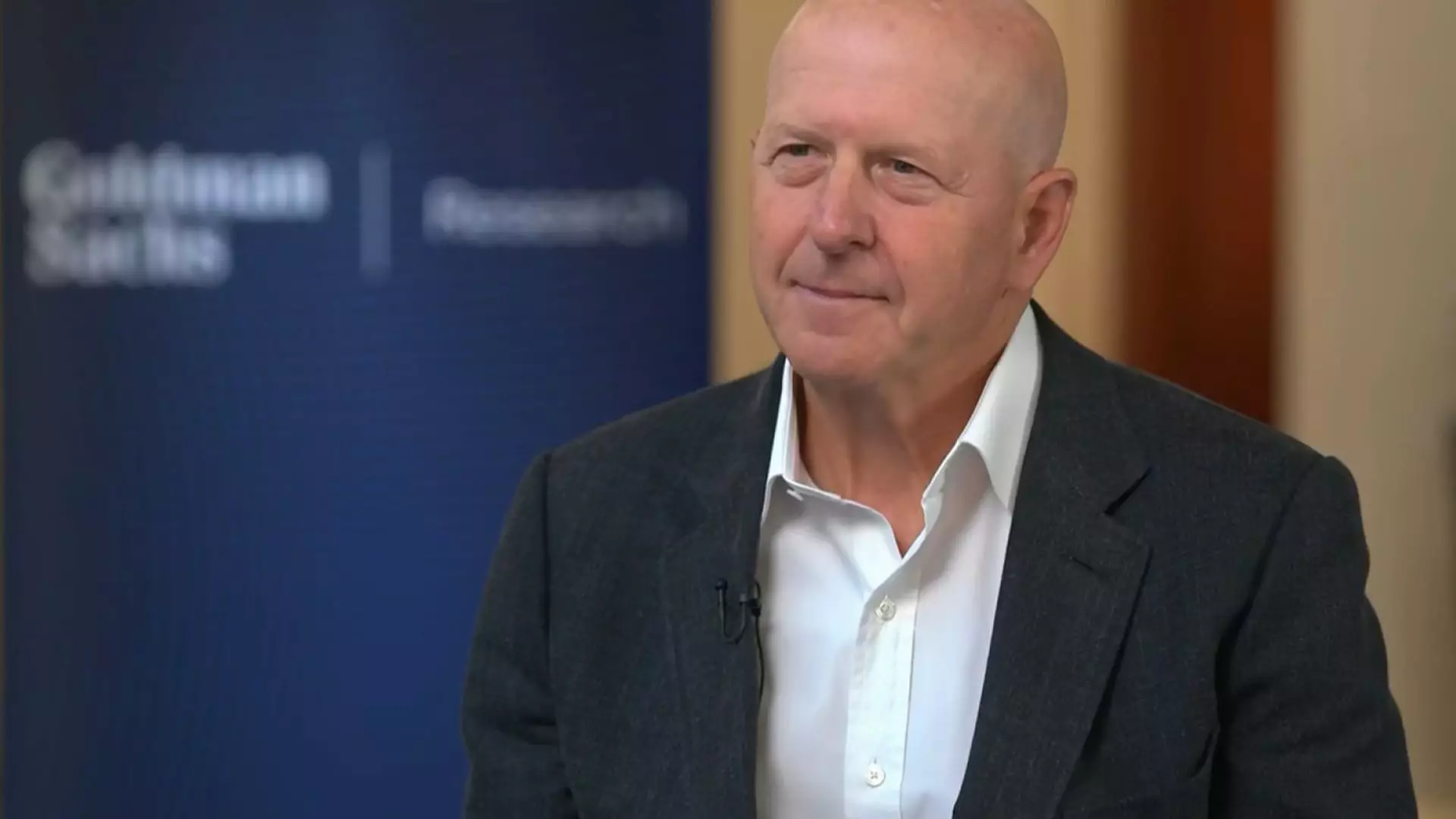In an era marked by economic uncertainty and a rapidly changing political landscape, Goldman Sachs has managed to post first-quarter earnings that exceed analyst projections, igniting conversations about grit and resilience in the face of adversity. The investment banking giant announced an astounding $14.12 per share in earnings, far surpassing the LSEG estimate of $12.35. This performance comes at a time when markets mimic a shaky ship caught in stormy waters, raising questions about whether Goldman can sustain this momentum.
The results heralded impressive revenue growth, with a reported $15.06 billion compared to expectations of $14.81 billion. This comes at a distinct moment in history, as the financial sector grapples with challenges stemming from geopolitical tensions, particularly those linked to trade wars initiated by former President Donald Trump’s administration. Goldman’s ability to defy such odds seems both impressive and alarming, hinting at deeper systemic issues within the financial ecosystem that perhaps only the most observant can grasp.
Resilience Through Trading Revenue
At the heart of Goldman’s unexpectedly positive performance is a robust increase in equities trading revenue, which ballooned by 27% to $4.19 billion—significantly outpacing analysts’ projections by approximately $540 million. This substantial rise in trading reflects not only the hunger for quick financial gains in a precarious environment but also exposes the underlying volatility in global markets. Investors are spying opportunities in the chaos, and Goldman, with its deep-rooted expertise, capitalized swiftly on these shifts.
However, this boost in equities trading also obscures more troubling signs elsewhere in Goldman’s portfolio. As the firm revels in trading victories, the losses in asset and wealth management revenues cannot go unnoticed. A 3% decline in this sector indicates a troubling trend: investor confidence is waning. It raises concerns about the sustainability of Goldman’s growth—can a bank thrive solely on trading revenues if other fundamental sectors are faltering?
The Shadow of Political Turmoil
Underlying Goldman’s strong performance is the turbulent waters stirred by political decisions, particularly those originating from Washington. CEO David Solomon alluded to this connection in his communications, hinting that the firm is preparing to navigate a “markedly different operating environment” moving forward. This statement reflects not only caution but perhaps poses an indirect criticism of the erratic economic climate fostered by policy decisions that prioritize volatility over stability.
Importantly, the broader implications of such political maneuvering cannot be ignored. With trade tensions brewing and a fluctuating economy, Goldman—and by extension, other financial institutions—may be forced to adapt or risk being left vulnerable. Their reliance on trading profits, elevated by turmoil, raises ethical questions. Are they thriving off instability rather than enabling constructive economic growth?
Comparative Insights from Competitors
Goldman’s financial counterparts, like JPMorgan Chase and Morgan Stanley, have shared in the winds of robust equities trading, reporting significant gains of 48% and 45%, respectively. This trend indicates that while Goldman may have narrowly outstripped individual expectations, it’s operating in an industry that is benefiting from the same chaotic backdrop. Such performance questions Goldman’s uniqueness; are they truly thriving, or simply riding on the coattails of an industry-wide trend?
The results of competitors bring into sharp relief the precariousness of relying on transient trading gains. The undercurrents of failure in investment banking fees and revenue dips in fixed income are remnant signs of a sector desperately trying to stabilize amidst fluctuating market dynamics. For investors, it poses an uncomfortable truth: Is the financial industry merely a gladiatorial arena where earnings are made at the expense of broader economic health?
Goldman’s first-quarter results showcase both triumph and warning signs. While they have emerged victorious this quarter, the broader implications of their strategies amid political chaos beg further scrutiny. Are they savvier than their rivals, or is this merely an illusion of strength amidst a weakening tide? Time will tell as they navigate the impending challenges.

Leave a Reply